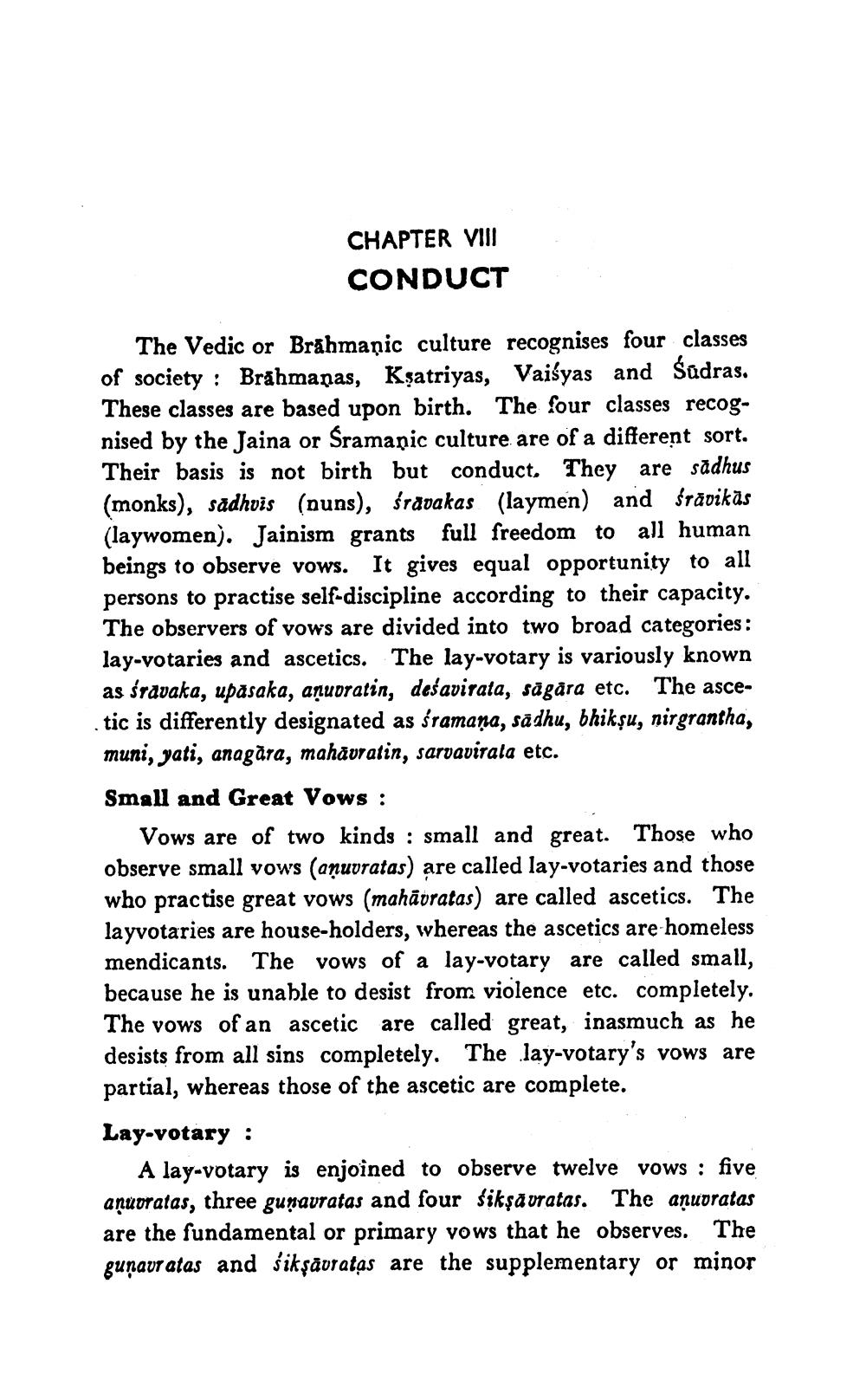________________
CHAPTER VIII CONDUCT
The Vedic or Brahmaņic culture recognises four classes of society : Brahmanas, Kşatriyas, Vaisyas and Sadras. These classes are based upon birth. The four classes recognised by the Jaina or Śramanic culture are of a different sort. Their basis is not birth but conduct. They are sādhus (monks), sadhvis (nuns), śravakas (laymen) and śrāvikās (laywomen). Jainism grants full freedom to all human beings to observe vows. It gives equal opportunity to all persons to practise self-discipline according to their capacity. The observers of vows are divided into two broad categories: lay-votaries and ascetics. The lay-votary is variously known as śravaka, upasaka, aņuoratin, deśavirata, sägära etc. The asce.tic is differently designated as śramaņa, sadhu, bhikṣu, nirgrantha, muni, yati, anagara, mahávratin, sarvavirala etc. Small and Great Vows :
Vows are of two kinds : small and great. Those who observe small vows (aņuvratas) are called lay-votaries and those who practise great vows (mahāvratas) are called ascetics. The layvotaries are house-holders, whereas the ascetics are homeless mendicants. The vows of a lay-votary are called small, because he is unable to desist from violence etc. completely. The vows of an ascetic are called great, inasmuch as he desists from all sins completely. The lay-votary's vows are partial, whereas those of the ascetic are complete. Lay-votary :
A lay-votary is enjoined to observe twelve vows : five aņuoratas, three gunavratas and four sikşāuratas. The aņupratas are the fundamental or primary vows that he observes. The gunaur atas and śikṣāvratas are the supplementary or minor




